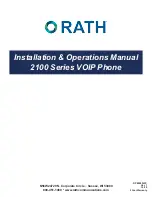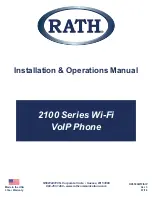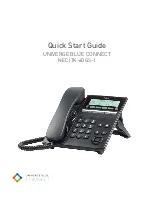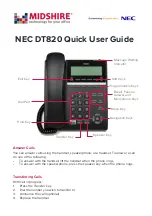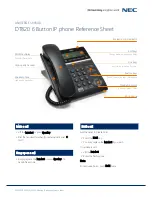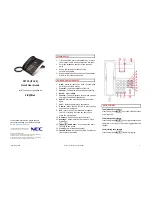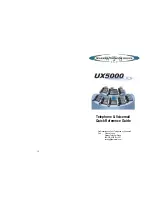
94
Wi-Fi (Wireless LAN)
・Use of Wi-Fi (Wireless LAN) is restricted in some countries.
Before using Wi-Fi overseas, confirm the legal regulation of
the country/region where you stay.
・Do not use Wi-Fi near magnetic devices such as
electronic appliances, AV/OA devices or in a place
where electromagnetic wave is generated. Magnetic/
electromagnetic waves may decrease the communication
speed or disable communication, or may cause noises
(especially when using a microwave oven).
・If there are multiple Wi-Fi access points nearby, handset
may not search a target access point correctly.
・Handset uses the same frequency band used by the
following equipment or radio station for the wireless
channel.
‒ Industrial, scientific and medical equipment
‒ Radio stations for identifying mobile units used in the
manufacturing lines of plants
‒ Premises radio stations (radio stations requiring a license)
・Notes on Using Wi-Fi (Wireless LAN)
To avoid radio wave interference when using Wi-Fi, take
care as follows.
1. Before using handset, confirm that premises radio
stations or specified lower power radio stations for
identifying mobile units are not in use nearby.
2. In the event of handset causing radio wave interference
with a radio station for identifying mobile unit, immediately
change the frequency of handset.
3. Also, in the event of handset causing radio wave
interference with specified lower power radio stations
for identifying the mobile units or amateur radio stations,
contact
.
・Frequency Band
This radio equipment uses 2.4 GHz frequency band.
DS: DS-SS modulation
4: Maximum interference range of 40 m
OF: OFDM modulation
4: Maximum interference range of 40 m
General Notes
Copyrights
・Copyright laws protect sounds, images, computer programs,
databases, other materials and copyright holders. Duplicated
material is limited to private use only. Use of materials
beyond this limit or without permission of copyright
holders, such as by copying (including altering data format),
modifying, transferring to anyone else, or making available
over a network, may constitute copyright infringement, and
be subject to criminal punishment. Comply with copyright
laws when making copies with handset camera or using
images captured with handset camera.
Portrait Rights
・Portrait rights protect individuals' right to refuse to be
photographed or to refuse unauthorized publication/use of
their photographs. Portrait rights consist of the right to
privacy, which is applicable to all persons, and the right
to publicity, which protects the interests of celebrities.
Therefore, photographing others including celebrities
and publicizing/distributing their photographs without
permission is illegal; use handset camera responsibly.
Summary of Contents for Libero 2
Page 1: ...Libero 2 User Guide ...
Page 2: ......
Page 16: ...14 Pinch Spread Contact Display lightly then close widen fingers ...
Page 32: ...30 ...
Page 37: ...Phone Placing Answering Calls 36 Optional Services 38 Using Contacts 40 ...
Page 44: ...42 ...
Page 53: ...Camera Capturing Still Images Videos 52 Viewing Captured Still Images Videos Photos 54 ...
Page 58: ...56 ...
Page 59: ...Music Listening to Music Play Music 58 ...
Page 62: ...60 ...
Page 63: ...Connectivity Connecting by Wi Fi 62 Using Bluetooth Function 63 ...
Page 68: ...66 ...
Page 69: ...Global Services Making Calls while Abroad 68 ...
Page 72: ...70 ...
Page 80: ...78 ...
Page 81: ...For Assistance Specifications 80 Customer Service 80 ...
Page 101: ......






















